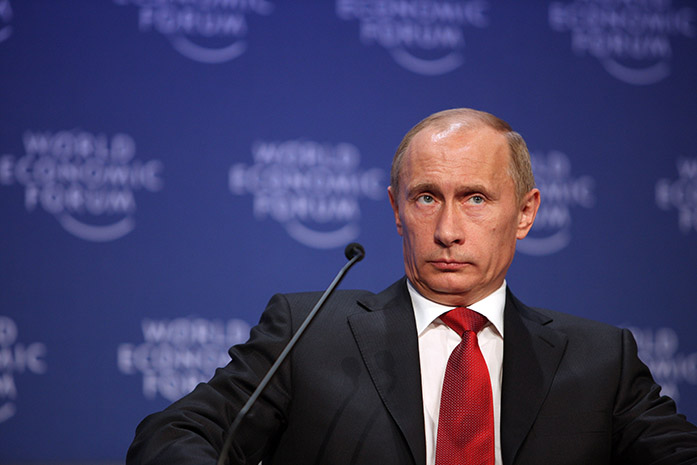On Feb. 3, U.S. Defense Secretary Ashton Carter made an assertion about the top threat facing America that has surprised some. The No. 1 national-security threat, in Carter’s view, is not ISIS, North Korea, or Iran, but Russia.
Citing Russia’s increased deployment of weapons, military personnel, and aggressive behavior under President Vladimir Putin, Carter’s speech came as President Obama announced that the U.S. would step up its deployment of military equipment in Eastern Europe, apparently in an effort to halt Putin’s unchecked march across the region.
According to the New York Times, the additional vehicles, weapons, and other equipment will require a substantial increase in military spending for Europe. The current budget for such spending is $789 million, but the Obama administration plans to ask for at least $3.4 billion in order to fund the proposal. Both American and NATO forces will have access to the equipment.
An administration official told the Times that the response “reflects a new situation, where Russia has become a more difficult actor.” If one were to take a brief look at recent history, that much is clearly true.
In February 2014, Russia invaded Crimea, which was then part of Ukraine. And a little over a month later, after a swift military invasion that faced no meaningful opposition, Crimea was annexed into the Russian Federation, an event setting off a civil war in the Donbass region of Ukraine that has killed around 9,000 people so far. The annexation is considered illegal by most international bodies, including the U.N. General Assembly, and they refuse to recognize Russia’s claim to the territory.
Today, a ceasefire has held the peace in the region. But the Obama administration’s move signals that confidence in our ability to work with Putin has greatly diminished, and rightfully so. The Russian leader has thumbed his nose at Western sanctions, even as they have a severe impact on his country’s economy, and he seems intent on creating a new sphere of influence in Eastern Europe, a counter to NATO that brings to mind the spread of the Soviet Union and its ring of communist-allied countries.
The Daily Iowan Editorial Board believes we cannot allow this to occur and thinks Obama’s proposal is prudent, if not a bit overdue. Though it’s not cheap, it’s important to demonstrate to our allies in NATO and across Europe that the United States won’t back down on its security obligations in the region.
Given the hyper-connected nature of our globalized world, it’s easy to forget that not everybody shares an interest in creating mutually beneficial diplomatic ties and working through issues without military escalation.
Putin seems to desire a return to 20th-century conflict, in which occupying and eventually taking sovereign nations through coercion and force is the way of doing business. It’s unfortunate that we have to take a page out his playbook in order to prevent further Russian expansion. Yet if fortifying borders and arming troops is what we need to do to maintain security in Eastern Europe, then it’s worth the $3.4 billion price tag.



